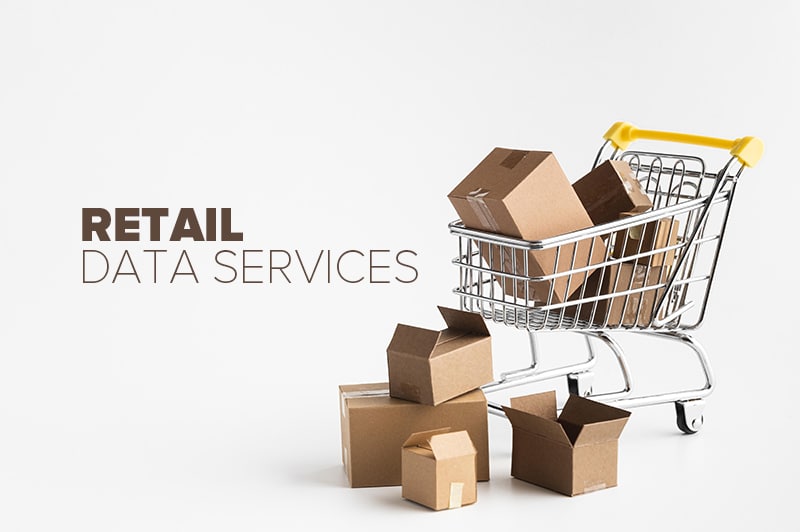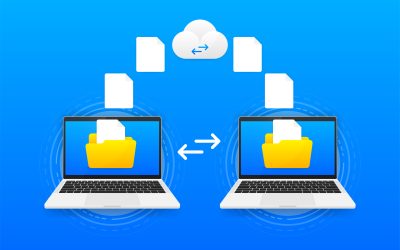Data collection and analysis are essential to the success of every industry and the retail industry is no exception in this regard. Retailing is one of the most competitive industries wherein novel trends arise on a day-to-day basis. Customer data is valuable to all businesses regardless of size, location, and distribution channel.
Analysis of retail data base can help reveal shopper patterns and trends, consumer sentiments, and are vital to the development of strategies for a competitive advantage. However, simply collecting data is not enough. The collected data must be accurate and analyzed and optimized to be of good use. As analysis of data can be a costly and time-consuming process, many retailers tend to outsource data entry. Outsourcing these tasks to reputable providers can improve efficiency and save costs.
As per reports from Grandview Research, the global data analytics outsourcing market is expected to grow at a CAGR exceeding 22.8 percent from 2018 to 2025. In fact, this statistics signifies that companies are widely recognizing the growing significance or benefits of choosing to partner with an outsourcing company for their data solution needs, instead of wasting time and resources to develop their own systems. Below discussed are the top benefits of utilizing outsourced retail data services –
- Accurate Data Analysis – Retail data analysis is useful only if the analyzed data is correct. By outsourcing data analytics, you can avoid costly mistakes. Data solution outsourcing providers are equipped with tools that are essential to aggregate, validate, curate, analyze, interpret, and visualize data. They also have the expertise and skills to undertake data-driven solutions with accurate data analysis and relevant insights. In addition, top providers always use automation and cutting edge technology to capture data in a quicker and more efficient manner. This in turn helps improve processes thereby increasing their efficiency and quality.
- Retain Focus on Business – Data in retail business tends to get generated at an unprecedented rate. Outsourcing the most important tasks of data lifecycle helps retail firms to focus on the day-to-day operations as well as strategic activities for growing their business rather than spending valuable time developing platforms to manage data.
- Access to Talented Professionals – Handling high-volume data projects involves its own set of challenges. Hiring professionals with valuable experience and top skill set could help aggregate, clean, and analyze data within minimum time. Partnering with a service provider will provide retail businesses access to talented teams of experts with the experience that suits unique data project needs. The team of experienced professionals helps meet deadlines without concerns such as underutilized staff which increases the overhead, or overutilized staff which can stress the team or reduce morale within the office. Back office outsourcing also reduces the need to spend resources for recruiting, training, and staff retention. Instead, these valuable resources can be used to focus on strategic growth initiatives, and improving customer service of the retail firm thereby enhancing their brand reputation.
- Flexibility and Scalability – By choosing to outsource to a third party, retail firms will have the scalability and flexibility to grow and manage increased demand without needing to allocate more resources and infrastructure.
- Enhance Data Security – Securing data related key business operations have become more challenging. Hackers can ruin business operations by accessing important data and information, no matter how advanced technology is used. Managing retail business with an outsourced support team can help prevent such activities and secure valuable business data.
- Improved Competitiveness – By outsourcing retail business tasks, small retailers can compete with larger and more established firms. For instance, if inventory started overflowing for a retail firm, the company can outsource warehousing and distribution to a third-party logistics provider. This helps the in-house team to focus on managing growth and keep up with the changing demand.
- Time and Cost Savings – Generally, cost is one of the main reasons corporate retail firms tend to outsource their data needs. The time and money required for creating and maintaining data analytics solutions are usually much more than that incurred when partnering with a third party provider with expertise in dealing with the technology requirements.
- Big Data Collection and Analysis – Outsourcing provides clear metrics and real time analysis about recent retail trends and statistics. This involves feedback on data like -questions related to a product, which items are selling more and which items are being returned more frequently. This type of data collection and analysis enables the retailer to make adjustments at specific points where required.
When it comes to managing data, retail businesses may not have the experience and capability to manage the immense amount of data generated effectively. Back office outsourcing is a great way to find the time and resources to focus on big-picture issues in the retail business. Outsourcing data services will help apply data insights seamlessly, support decision-making, and give retail businesses the competitive advantage needed in today’s marketplace.




